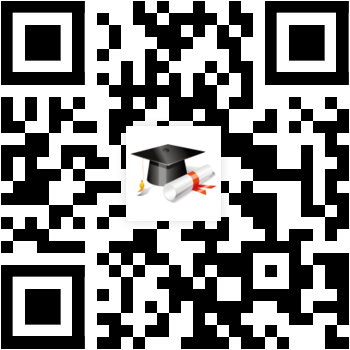2017年一月管理类联考英语阅读模拟题及参考答案
来源:在职研究生招生信息网 发布时间:2016-11-21 16:27:21
不管选择2017年一月联考中的哪一个在职研究生专业,英语是必考科目。现在距离考试试题不到两个月了,考生加强阅读训练是必须的。以下是有关英语阅读方面的模拟试题,大家可参考复习:
Section I Use of English
Directions:
Read the following text. Choose the best word(s) for each numbered blank and mark A, B, C or D on ANSWER SHEET 1. (10 points)
Most worthwhile careers require some kind of specialized training. Ideally, therefore, the choice of an 1 should be made even before choice of a curriculum in high school. Actually, 2 , most people make several job choices during their working lives, 3 because of economic and industrial changes and partly to improve 4 position. The “one perfect job” does not exist. Young people should 5 enter into a broad flexible training program that will 6 them for a field of work rather than for a single 7 .
Unfortunately many young people have to make career plans 8 benefit of help from a competent vocational counselor or psychologist. Knowing 9 about the occupational world, or themselves for that matter, they choose their lifework on a hit-or-miss 10 . Some drift from job to job. Others 11 to work in which they are unhappy and for which they are not fitted. One common mistake is choosing an occupation for 12 real or imagined prestige. Too many high-school students—or their parents for them—choose the professional field, 13 both the relatively small proportion of workers in the professions and the extremely high educational and personal 14 . The imagined or real prestige of a profession or a “White-collar” job is 15 good reason for choosing it as life’s work. 16 , these occupations are not always well paid. Since a large proportion of jobs are in mechanical and manual work, the 17 of young people should give serious 18 to these fields.
Before making an occupational choice, a person should have a general idea of what he wants 19 life and how hard he is willing to work to get it. Some people desire social prestige, others intellectual satisfaction.
Some want security; others are willing to take 20 for financial gain. Each occupational choice has its demands as well as its rewards.
1. [A] identification [B] entertainment [C] accommodation [D] occupation
2. [A] however [B] therefore [C] though [D] thereby
3. [A] entirely [B] mainly [C] partly [D] his
4. [A] its [B] his [C] our [D] their
5. [A] since [B] therefore [C] furthermore [D] forever
6. [A] make [B] fit [C] take [D] leave
7. [A] job [B] way [C] means [D] company
8. [A] to [B] for [C] without [D] with
9. [A] little [B] few [C] much [D] a lot
10. [A] chance [B] basis [C] purpose [D] opportunity
11. [A] apply [B] appeal [C] stick [D] turn
12. [A] our [B] its [C] your [D] their
13. [A] concerning [B] following [C] considering [D] disregarding
14. [A] preferences [B] requirements [C] tendencies [D] ambitions
15. [A] a [B] any [C] no [D] the
16. [A] Therefore [B] However [C] Nevertheless [D] Moreover
17. [A] majority [B] mass [C] minority [D] multitude
18. [A] proposal [B] suggestion [C] consideration [D] appraisal
19. [A] towards [B] against [C] out of [D] without
20. [A] turns [B] parts [C] choices [D] risks
Section II Reading Comprehension
Part A
Directions
Read the following four texts. Answer the questions below each text by choosing A, B, C or D. Mark your answers on ANSWER SHEET 1. (10 points)
Text 1
The “new economic order” is a global one. Policymakers, educators, business, and industry are all concerned with strengthening the United States for competition in this new arena. Career education has generally focused on helping people understand the relationship between education and work and acquire employability skills. Now people need assistance in realizing the opportunities and meeting the challenges of the international workplace.
The evolving global economy is based on a number of factors: decreasing transportation and communications costs, new political structures and economic alliances. The most important influence is the emergence of flexible, information-based technologies. Profound economic and social changes are creating new market standards (productivity, quality, variety, customization, convenience, timeliness) and integrating producers and consumers into network for delivering goods and services globally or locally. Meeting these standards requires great changes in organizational structures, skill needs, and jobs.
According to Carnevale, competitive organizations will be characterized by productivity, flexibility, speed, affordable quality, and customer focus. Many organizations will emphasize closely integrated workgroups, teamwork, and shared information. The need for certain types of workers is being reduced or eliminated. At the same time, freer movement of some workers across national borders is escalating; other workers may engage in “electronic immigration,” interacting through telecommunications with their employers in other countries.
The global economy will influence people’s lives whether or not they are employed in international firms.
In the new economy, nations compete not only with each other’s economic systems, but also with each other’s research and development and educational systems. Global events affect domestic economies.
Other characteristics of work in the new economy also have implications for career development. Managers will become brokers/facilitators; there will be more technical specialists, and shorter, flatter career ladders.
Instead of the old-style division of labor into discrete tasks, job functions will converge, and work teams will consist of individuals who alternate expert, brokering, and leadership roles. Rewards will be based more on the performance of teams and networks.
A number of the skills needed for work in the global economy are reflected in current curricular emphases such as development of critical thinking skills, tech prep, the integration of vocational and academic education.
Career educators can collaborate with vocational and academic educator and employers in documenting the need for these skills and infusing them in a multidisciplinary approach. As Zwerling puts it, “the best liberal education may come to be seen as career education; the best career education may be seen to be liberal education.” The challenges of the global economy are an opportunity not only for work organizations to redesign themselves across reenvision ways to prepare people for life and for work.
21. In face of the evolving global economy, the author suggests that the emphasis on career education be shifted to .
[A] facilitating the acquisition of employability skills
[B] strengthening the United States for competition with other countries
[C] preparing people for the challenges of the international workplace
[D] understanding flexible and information-based technologies
答案解析
1.[答案] [D]
[考点] 上下文关系
[分析] 上一句说:大部分有价值的职业都需要专门的训练。这一句的意思应为:怕以,从理论上来说,在选择
中学的课程之前,就应选择好职业。[A] identification“身份证明”,[B] entertainment“娱乐”,[C]
accommodation“膳宿”,此三项与上下文毫无关系;[D] occupation 职业,符合题意,为正确答案。
2.[答案] [A]
[考点] 上下文关系
[分析] 空格前的句意为:理想的情况是,在选择中学的课程之前就应选择好职业。空格后的句意为:现实生活中,大部分人一生中要换好几个工作。这是现实与理想的对比,两者之间是有差异的,是转折关系,因而需选[A]however“但是”。[B] therefore“所以”,表因果关系;[C] though“尽管”,表让步的转折;
[D] thereby“因此”,表因果。以上三项皆不合题意。
3.[答案] [C]
[考点] 固定搭配
[分析] 此句解释了人们换多个工作的原因,空格后有 partly 一词,说明前面也应是 partly,构成 partly…and partly “部分是……部分是……”的结构,因此选[C]partly。此句意为:部分原因是经济和产业上的变化,部分原因是为了提高地位。[A] entirely“完全地”,[B] mainly“主要地”,[D] his“他的”,都不合题意。
4.[答案] [D]
[考点] 代词的用法
[分析] 空格处需用一物主代词,承前指代主语 they,因此应选[D] their.
5.[答案] [B]
[考点] 上下文关系
[分析] 上句说“完美的工作”是不存在的。此句认为年轻人应该参加涉及面广、弹性强的培训计划。由于存在前一句所述的事实,所以才有后一句的建议,这两者是因果关系,因而需选[B] therefore“所以”。[A] since “既然”,引导原因从句;[C] furthermore“更加”,表进一步的说明;[D] forever“永远”。
6.[答案] [B]
[考点] 固定搭配
[分析] 此处要表达的意思为:这项计划将会使他们适应某一领域的工作,而不仅仅是某一项工作。因而应选[B]fit, 构成 fit…for“使适应”的结构。[A] make“制造”,[C] take“拿”,[D] leave“离开”,此三项都不合题意。
7.[答案] [A]
[考点] 上下文关系
[分析] 本文通篇讲的都是工作问题,显然,此处应填入表示“工作”的词,构成这样的句意:使他们适应某一领域的工作,而不仅仅是某一项工作。因而[A]job“工作”正确。
8.[答案] [C]
[考点] 上下文关系
[分析] 空格处需一介词引导名词作状语,表伴随情况,四选项中只有[C]withou 与[D] with 有此功能,但句首的unfortunately 这一提示语表明事实并不是理想中那样,因而只有选[C] without,构成的句意为:不幸的是, 很多年轻人在没有得到高明的职业顾问或心理学家的指导前,就不得不做出职业计划。这一句话同时也是本段的中心句。[A] to 和[B] for 在此都不合题意。
9.[答案] [A]
[考点] 上下文关系
[分析] 根据上一句话,即本段的中心句可知,年轻人在没有人指导的情况下,对所选择的职业应该知之甚少,因而备选答案只有[A]little和[B]few,但 few 用来修饰可数名词,不合题意,故[A]little 为正确选项。[C]much“很多”,[D]a lot“很多”,都不合题意。
10.[答案] [B]
[考点] 固定搭配
[分析] 此句意为:他们对该职业和自身情况都知之甚少,在毫无计划的情况上,就选择了一生的职业。表示“在……基础上”的固定搭配是 on…basis,因而本题应选[B] basis。[A] chance“机遇”,[C] purpose“目的”,[D] opportunity“机会”,此三项都不合题意。
11.[答案] [B]
[考点] 固定搭配
[分析] 此句意为:其他人死抱着自己并不喜欢也不胜任的工作不放。[A]apply to“适用于”,如:His answer does not apply to the test question. ”他的回答不合题意。”[B] appeal to“吸引”,如:This proposal doesn’t appeal to me.“这项建议并不能吸引我。”[C] stick to“坚持,坚守”,如:stick to a post“坚守一个岗位”。[D] turn to“求助于”,如:He turns to his teacher when he has any problem in study.“学习有困难时,他就向老师求助。”此四项中,只有形成对比,说明这两种状态都是不对的。
12.[答案] [B]
[考点] 代词的用法
[分析] 该空格处的代词指代的应是 occupation,因而需选[B] its,其他三项都不合题意。该句意为:年轻人普遍会犯这样的错误,他们选择某职业是为了它那真实存在的或仅仅是想象中的名声和地位。
13.[答案] [D]
[考点] 上下文关系
[分析] 此句是对上句“一个错误”的补充。空格前说:太多的中学生,或他们的父母代替他们选择职业。空 格后的文意是:该职业所需人员少,且需高学历和高素质的人才。所以空格处应选意为“不管,不顾” 的词,这样才能连接好空格前后的意思,所以[D] disregarding 为正确答案,构成如下意思:太多的中学生,或他们的父母代替他们选择职业,而对该职业所需人员少、且需高学历和高素质的人才这一现实置之不理。[A] concerning“有关的”,[B] following“跟随”,[C] considering“考虑”,此三项皆不合题意。
14.[答案] [B]
[考点] 词义辨析
[分析] 此空格处需构成的意义为:此项工作对学历和个人素质都有极高的要求。因而 [B] requirements “要求”为正确答案。[A] preferences“偏爱”,[C] tendencies“倾向”,[D] ambitions“雄心壮志”。
15.[答案] [C]
[考点] 固定用法
[分析] 此句是对上述错误做法的驳斥,意为:某职业想象中的或真实的名声或一个“白领“工作根本就不是 将其作为终生职业的好理由。因而[A] a good reason“一个好理由”,不合题意;[B] any good reason“任何好理由”,也不对;[C] no good reason“根本不是好理由”,符合题意,为正确答案;[D] the good reason“这个好理由”,不合题意。
16.[答案] [D]
[考点] 上下文关系
[分析] 此句意义为:这些工作的待遇不一定总是很好。这是对年轻人择业误区的进一步的说明,在意义上比 上一句更进了一步,因而[D]Moreover 为正确答案。[A] Therefore“所以”,表因果关系;[B] However“但是”,表转折;[C] Nevertheless“然而”,表转折。以上三项皆不合题意。
17.[答案] [A]
[考点] 上下文关系
[分析] 空格前由 since 引出了一原因从句:由于技术工作和体力工作占了劳力市场的一大部分。那么,空格处相应的填入[A] majority,构成“大部分的年轻人应考虑选择这些行业”之意。所以[A] majority 为正确答案。[B] mass“大量,大宗”,此空格前有定冠词 the,但在文中无所指,且无“大部分人”之意,所以为错误选项;[C] minority“小部分”,不合题意;[D] multitude“许多人,大群人”,与[B]一样,也不合题意。
18.[答案] [C]
[考点] 惯用法搭配
[分析] 此句意为:大部分的年轻人都应认真考虑这些领域的工作。表示“认真考虑”,四个选项中只有[C]consideration 正确,即:give serious consideration to。其他选项,[A]proposal“提议”,[B]suggestion“建议”,[D]appraisal“评估”,都不合题意。
19.[答案] [C]
[考点] 上下文关系
[分析] 此句意为:在作出决定之前,他应该要了解自己想从生活中得到什么,又愿意为之付出多大的劳动。[A]towards“向”;[B] against”反对”;[C] out of “从……中”;[D] without”没有”。此四项中[C] out of 最合适,构成 want out of life“想从生活中得到”,其他都不合题意。
20.[答案] [D]
[考点] 固定用法
[分析] 此句意为:有些人想要稳定,而另外一些人则为了金钱愿意冒险。Take risks 为惯用法,意为“冒风险”,因而应选[D] risks。[A] take turns“依次,轮流”,不合题意;[B] parts 和[C] choices 也都不合题意。
Part A 答案
21. [C] 意为:使人们准备好迎接国际劳务市场的挑战。
第一段提到,“新经济秩序”是全球性的,政策制定者、教育家、商界、企业界都想加强这个新秩序下美 国的竞争力,就业教育通常关注的是帮助人们理解教育和就业之间的关系,使之获得就业技能,但是,人们现 在需要的是把握机会,迎接国际劳务市场的挑战。本段最后一句实际上表达了作者的观点,回答了在新经济秩 序下,就业教育的 focus 应该是什么。注意:本文中提到的 new economic order, evolving global economy, global economy, the new economy 实际上都是指“全球化经济”。
[A] 意为:有助于就业技能的获得。根据第一段第三句,这是传统职业教育的内容。
[D] 意为:使人们理解灵活的、以信息为基础的技术。
22.[B] 意为:新的市场标准。
第二段第三、四句提到,深刻的经济和社会变化正在创建新的市场标准(包括高的生产率和质量的标准,产品多样化,以客户为中心,方便、及时的服务),这些变化正在将生产者和消费者联成一个提供产品和服务的全 球性或地区性网络。满足这些标准需要组织结构、工作技能和就业方式的巨大变化。可见,所需要的工作技能的转变,是新的市场标准所导致的。
23.[C] 意为:由社会分工造成的更专门化的工作。
第三段提到了协作和团队精神(closely integrated work groups, teamwork)的重要性,因此选择项[A]表达的内容是正确的。第四段提到,在新的经济时代,国家不仅展开经济体制上的竞争,而且展开研究、开发、教育体制上的竞争,因此选择项[D]表达的内容是正确的。
第五段提到,新经济时代的其他特点也影响着职业发展。经理将成为经纪人或服务商,将会有更多的技术 专家;工作上的升迁将变得更短、更平(含义是:上下级之间的升迁将变得容易、频繁);老式的工作细分不复存在(因此选择项[C]表达的内容不正确),取而代之的是各种工作职能的融合,工作团队中的个体不断更换角色,时而做专家,时而做经纪人,时而做领导。工作奖励更多地视小组和整个网络的工作表现而定。因此[B](工作者在不同角色间转换的能力)表达的内容是正确的。
24.[D] 意为:提高学生的学术能力。
最后一段提到了通识教育(liberal education)和职业教育的结合问题。作者指出,就业教育者可以同职业教育、学术教育工作者以及雇主合作,确立所需要的这些技能,以多学科的教育方式培养这些技能。可见,这里所说的“通识教育”是相对于“就业教育”而言,是一种 academic education。实际上,上一句已经提到了这个词组。
[B] 意为:超越传统界限。[C] 意为:促进学生独立思维和批判性思维的能力。
25.[A] 意为:新时代的工作和就业教育特征。
第一段最后一句实际上提出了本文的主旨。中间各段提到了新时代的工作和就业教育的特点,最后一段是对全文的总结,指出了通识教育和就业教育相结合迎接新时代的挑战的必要性。
26.[D] 意为:对有关发展问题的讨论刊载不够多。
第二段提到,发展问题之所以在经济学课程和报刊文章中没有受到应有的重视,是由几个原因造成的。多数经济学家和记者居住在工业化国家,在那里,发展问题已经不再是严重的问题。由此推断,西方国家(工业化国家)的报纸不重视发展问题,当然具体表现自然是在报纸对这样的问题讨论不够。[C] 意为:不重视经济活动中个体的创造力。
27.[B] 意为:它更适宜于解释有规律的现象。
第二段提到发展问题不受重视的另一个原因。作者认为,经济学的分析工具在处理发展问题上存在问题,因为个体的创造力是发展的一个重要因素。某个个体必须看准机会,并决定如何利用这些机会。就其本质而言,创 造力几乎无法在理论中体现,理论试图解释的是规律性,但是,创造力的本质在于其创新作用,即创生出一种不合规律的现象。这里说的 theories 当指经济学理论,这里谈的当然是经济学理论的内在缺陷。 [A] 它从来不考虑个体活动。
28.[A] 意为:政府对个体创造力(的发挥)制定了正确的激励政策。
第三段提到,就促生和支持经济发展的条件而言,20 世纪提供了某些有趣的实验。根据本段第三句,这里 所说的 conditions 实际上指政府制定的激励制度。第四段更是对这种激励制度的影响进行了详细说明。 [B] 意为:各种因素共同作用促进经济发展。文章强调了一种因素‐‐‐激励制度的关键作用。[C] 意为:允许对激励制度开展不同实验。
大家在报考中如果遇到难题,可联系中国在职研究生招生信息网老师,进行咨询。





















